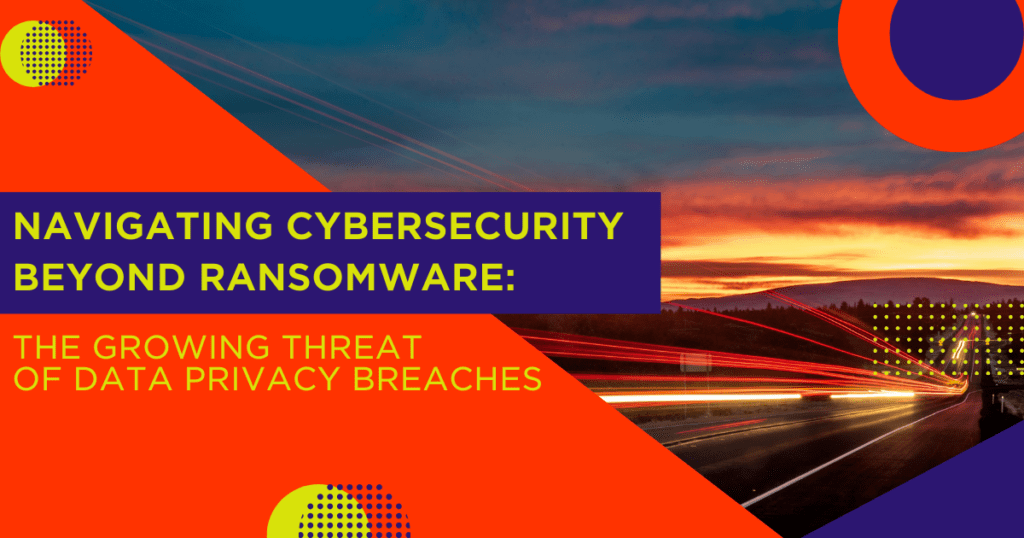Historically, ransomware has been the primary specter haunting the corporate world. In 2023, Checkpoint Research delivered a startling statistic: 10% of organizations worldwide were targeted by an attempted ransomware attack—a significant leap from 7% the previous year, marking the highest rate in recent times.
This striking data underscores why ransomware has been at the forefront of business leaders’ concerns. However, a parallel threat is emerging: privacy breaches, whose impacts, though less immediate, are potentially just as catastrophic.
The long arm of privacy litigation stretches far, often taking several years to resolve. Although privacy claims may take longer to manifest their impact, new studies are showing that the outcomes of these cases are no less severe than those of ransomware, with the potential to shake the very foundations of companies.
The Rising Tide of Privacy Regulations
With the evolution of regulations and increasing awareness of data protection, the mishandling of protected personally identifiable information (PII) has emerged as a significant threat, rivaling ransomware in terms of potential damage.
The repercussions of not understanding or complying with privacy laws are substantial. Many organizations are unclear about the types of data they collect and how it’s stored, which can lead to potential regulatory or legal violations. This lack of clarity is concerning given the gravity of such oversights.
This complexity is compounded by the diversity of privacy laws across states and countries. For instance, nearly every U.S. state has specific laws regarding health records and children’s data, and international laws like the GDPR add another layer to the compliance cake.
The consequences of non-compliance can be severe. Minor missteps, such as improperly handling an opt-out request, can lead to significant legal and financial consequences.
Beyond Ransomware: A Holistic Approach to Cyber Threats and Privacy Protections
The Securities and Exchange Commission’s (SEC) new cybersecurity regulations underscore a broadened approach that businesses must adopt, spotlighting the intertwined nature of cybersecurity and privacy. It is imperative for companies to not only brace for ransomware but also to proactively manage privacy risks and ensure compliance with evolving privacy laws. These regulations signify a pivot from focusing solely on the aftermath of cyberattacks to fostering a culture of preparedness, resilience, and comprehensive risk management that encompasses both cybersecurity and privacy concerns.
The SEC’s amendments emphasize the need for timely disclosures of material cybersecurity incidents and detailed periodic disclosures about an organization’s risk management processes, strategy, and governance. This includes assessing, identifying, and managing material cybersecurity risks, as well as detailing the board of directors’ oversight of these risks.
Importantly, organizations are required to describe their processes for managing material risks from cybersecurity threats in a way that includes privacy considerations. This could involve detailing how these processes are integrated into overall risk management systems, the role of management in overseeing privacy and cybersecurity risks, and how these efforts are communicated to and overseen by the board.
Furthermore, the SEC’s inclusion of governance in the framework emphasizes the strategic importance of privacy and cybersecurity at the highest levels of corporate decision-making. By requiring disclosures about the board’s and management’s roles in cybersecurity governance, the SEC is signaling that privacy and cybersecurity are not just IT issues but are critical to the overall strategic risk management of an organization.
The integration of privacy into cybersecurity risk management, as mandated by the SEC, underscores the necessity for organizations to adopt a comprehensive approach to protecting sensitive information. This involves not only defending against external threats like ransomware but also ensuring that internal policies, third-party relationships, and governance structures support robust privacy protections.
Kuma: Your Partner in Privacy and Compliance
When faced with the challenge of navigating these new requirements, organizations need a trusted partner who understands the landscape’s complexity and can navigate it with finesse. Our comprehensive cybersecurity and privacy services go beyond risk assessment to develop a holistic strategy that encompasses both ransomware defense and data protection, meeting compliance standards and keeping your business strong in the face of potential threats and risks.
At Kuma, we believe that the best defense is an empowered offense. We do not just help you react to incidents; we enable you to anticipate and prevent them. Our privacy risk assessments are tailored to your organization, providing insights that empower you to make informed decisions. With Kuma, privacy concerns are transformed from potential crises into opportunities for demonstrating responsibility and earning customer trust.
Embracing the Future with Confidence
As ransomware and privacy concerns continue to evolve, businesses must adapt to stay ahead. It is clear that the responsibility for handling information securely and privately is becoming as significant as protecting against ransomware itself. With Kuma, you are not just defending against threats; you are building a culture of privacy and compliance that strengthens your organization and positions you as a leader in your industry.


